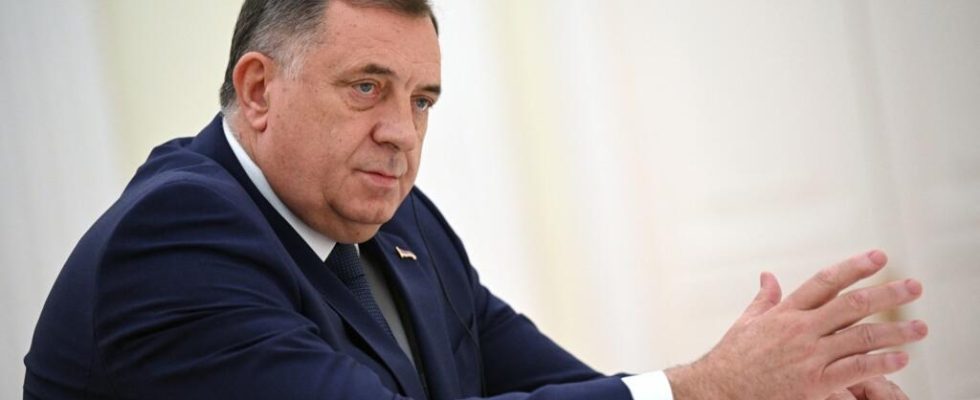It is a legislative showdown that once again raises fears for peace in Bosnia-Herzegovina, 27 years after the end of a fratricidal war. For several weeks, the President of the Republika Srpska, Milorad Dodik, has been opposing the international representative on various bills that call into question the unity of the country. Friday, July 7, this close to the Kremlin took action.
With our correspondent in Sarajevo, Louis Seiller
After several days of skirmishes with his adversary, the separatist leader, Milorad Dodik finally promulgated a law which rejects the authority of the International High Representative over Republika Srpska, one of the two entities of Bosnia and Herzegovina.
Since 1995, and the end of the war which left 100,000 dead and two million displaced, this High Representative has been responsible in particular for ensuring respect for the unity and integrity of a central State undermined by community divisions, and he notably has the power to dismiss local elected representatives or annul laws passed by the country’s parliaments.
Prerogatives that the ultranationalist Milorad Dodik has been denouncing for almost two years. The President of the Republika Srpska is in fact contesting the legitimacy of the current High Representative, because China and especially Russia opposed his official appointment.
While the three million Bosnians are still traumatized by the conflict of the 1990s, Milorad Dodik regularly announces the independence of the Republika Srpska, which leads to him being targeted by American and British sanctions. Since the invasion of Ukraine, he is also one of the few European leaders to claim the support of Vladimir Putin, whom he meets regularly.
Read alsoMilorad Dodik, secessionist leader of Republika Srpska
